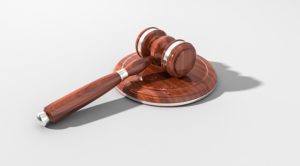When a person is injured because of the actions of another, they may be entitled to various types of damages, which are meant to compensate them for their injuries.
One of those types of damages is known as punitive damages. The purpose of punitive damages is to punish misconduct that is particularly reprehensible.
However, some state laws place limits on punitive damages. If you have questions about punitive damages available in Arkansas, talk to our personal injury lawyer.
The basics on punitive damages
Since punitive damages are awarded for especially egregious conduct, those awards can be quite large and often exceed the regular compensatory damages award. However, some states have enacted laws that either limit punitive damage amounts or limit the situations in which they can be awarded.
In most cases, punitive damages apply to cases where it can be shown that the defendant knew or should have known that his conduct would “naturally and probably result in injury or damage and that he or she continued the conduct with malice or in reckless disregard of the consequences, from which malice may be inferred.” Punitive damages can also apply in cases where the defendant’s conduct was actually intentional.
Arkansas limits on punitive damages were struck down
Arkansas legislature passed a law that imposes limits on punitive damages because of the likelihood that punitive damages awards in personal injury cases can be so substantial. However, an Arkansas Supreme Court decision in 2011, based on the state’s constitution, removed some of the limitations as to certain types of claims. The Arkansas Constitution reads, “no law shall be enacted limiting the amount to be recovered for injuries resulting in death or for injuries to persons or property.”
The court decision removed the limits on punitive damages in cases where it can be proven that the alleged conduct involved a specific level of recklessness or intentional conduct. It must be shown that the punitive damages are appropriate by “clear and convincing” evidence, which a personal injury lawyer understands is a high standard and difficult to prove.
Other damages in personal injury cases
Even the most experienced drivers can find themselves involved in a car accident. Regardless of how minor your injuries may seem at first, you should always seek medical attention as soon after a car accident as you can. Remember to tell your doctor that you were involved in a car accident and describe exactly what happened. The next step should be to consult with a personal injury lawyer.
How much can you recover for damages?
The amount of compensation you may recover after a car accident depends on the type of damages you suffered. Each claim is different, both factually and with regard to which laws apply to your claim. The most important element used in determining the value of a car accident claim is the nature and seriousness of your injuries. Our personal injury lawyer can help you determine the potential value of your car accident claim.
What is the real purpose of a damages award?
The purpose of a damages award in a personal injury case is to make the victim “whole.” This basically means compensating the victim for everything was lost as a result of the accident or injury. As any personal injury lawyer will tell you, the way to accomplish that is usually a monetary award.
Compensatory Damages
In most car accident cases, the primary component of damages is medical expenses incurred as a result of the accident. Reimbursement for medical treatment basically includes compensation for treatment already received, as well as the estimated costs of any medical care that may be required in the future.
Additionally, the injuries suffered can have a substantial impact on the victim’s ability to return to work, either temporarily or permanently. In that case, damages may include future income.
Emotional Distress and Pain and Suffering
Another important component of damages in nearly every car accident case is compensation for pain and suffering. If you suffer pain and severe discomfort at the time of the injury, as well as ongoing pain, that is a separate type of damages for which compensation may be available. Another thing to consider is the effect of more severe injuries, which often lead to emotional distress damages for the psychological impact of the injuries. These types of damages can be difficult to prove so discuss your options with a personal injury lawyer.
If you have questions regarding punitive damages or any other personal injury matters in Arkansas or Missouri, please contact the Cottrell Law Office for a free consultation. You can contact us either online or by calling us toll-free at (888) 433-4861.



